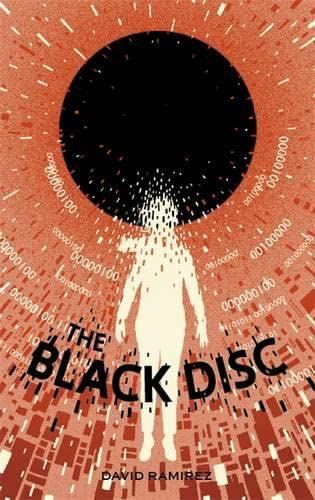
Wittgenstein, Language and Information
"The more narrowly we examine language, the sharper becomes the con?ict - tween it and our requirement.
(For the crystalline purity of logic was, of course, not a result of investigation; it was a requirement.
) The con?ict becomes intolerable; the requirement is now in danger of becoming empty.
-We have got onto slippery ice where there is no friction and so in a certain sense the conditions are ideal, but also, just because of that, we are unable to walk.
We want to walk; so we need 1 friction.
Back to the rough ground!" -Ludwig Wittgenstein This manuscript consists of four related parts: a brief overview of Wittgenstein's p- losophy of language and its relevance to information systems; a detailed explanation of Wittgenstein's late philosophy of language and mind; an extended discussion of the re- vance of his philosophy to understanding some of the problems inherent in information systems, especially those systems which rely on retrieval based on some representation of the intellectual content of that information.
And, fourthly, a series of detailed footnotes which cite the sources of the numerous quotations and provide some discussion of the related issues that the text inspires.
The ?rst three of these parts can each be read by itself with some pro?t, although they are related and do form a conceptual whole.
von Blair, David.
Bücher

Beaky Barnes
David Ezra Stein

Plastiki
David de Rothschild

Shadow on the Sun
David Macinnis Gill

Responding to Urban Disasters
David Sanderson

Black Disc
David Ramirez

Black Disc
David Ramirez

Childhood in Western Europe 1900-1960
David Kerr

Childhood in Western Europe 1900-1960
David Kerr

War and World Economy Reader
David Goldfischer

Secret Life of Football
David Triesman

Death Comes to Vicenza
David Dickinson

It's All True
David Freeman

Grain Brain
David Perlmutter

Emergency and Intractable Headache
David W. Dodick

Barry Island Through Time
David Ings

Cybercrime
David S. Wall

Jack Frost Sticker Book 1 Jack Frost Sticker Book 1
David Melling

Jack Frost Sticker Book 2 Jack Frost Sticker Book 2
David Melling

Horned Dinosaurs
David West

Jack Frost Flap Book 2 Jack Frost Flap Book 2
David Melling

Jack Frost TV Tie In
David Melling

Hereticks
David Nunemaker

Life and Works of Schubert
David Cairns

Securing the Virtual Data Center
David Anderson

Untitled David Matthews
David Matthews

Managing Performance and Capacity
David Collier-Brown

Sweet and Vicious
David Schickler

Fundamentals of Powertrain Calibration
David R. Rogers

Geographical Offender Profiling
David Canter

Facebook Effect
David Kirkpatrick

Game of My Life
Amy Lawrence & Olivia Blair

Religious Sublime
David B. Morris

Kids of Appetite
David Arnold

Geographical Offender Profiling
David Canter

Big Flavours and Rough Edges
David Eyre

Investigative Psychology of Serial Killing
David Canter

Being Bailey Export/Airside/Ireland
David Bailey

Weaponized
David Guggenheim and

Being Bailey
David Bailey

Verdi
David Gilmour

Core AngularJS
David Geary

Real Peaky Blinders
David Meikle

Journal Guide for Those Experiencing Loss
David Knapp

Dissident
David Herszenhorn

Exploring the Philosophy of Religion
Stewart, David

Quint
David Quint

Damrosch
David Damrosch

Claw Heart Mountain
David Oppegaard

To Vinland
David Mitchell

Damrosch
David Damrosch

Education Debate
David Kirp

Conc. Henry James' the Spoils P
David Leon Higdon

Investment Banks, Hedge Funds, and Private Equity
David Stowell

Conc. Henry James' the Spoils P
David Leon Higdon

BIO Mindset
David Nurse

Aquananotechnology
David E. Reisner

Reading Elgars the Music Makers
Young, David
Ähnliche Bücher

Soils of Volcanic Regions in Europe
Ólafur Arnalds

Java Praxisnah
Ulrich Bode

Timing and Temporality in Islamic Philosophy and Phenomenology of Life
Anna-Teresa Tymieniecka

Clinical Nuclear Medicine
Hans-Jürgen Biersack

Fallen Superheroes
Eric Curtis

Schleiermacher und Claus Harms
Hans F. Traulsen

Pneumatic Drives
Peter Beater

Masculinity in Fiction and Film
Brian Baker

Moderne Praxisführung
Christoph Reisner

Mathematical Modeling of Biological Systems, Volume II
Andreas Deutsch

Report of the 19th Session of the Fishery Committee for the Eastern Central Atlantic
Food and Agriculture Organization of the United Nations

Chemokine Receptors in Cancer
Amy M. Fulton

Nukleonenphysik
Hans Bucka

Vorträge und Abhandlungen
Hans Lüttger

Kommentierung, Überlieferung, Nachleben
Jürgen Wiesner

Search
Jayne Askin

Before Haiti
J. Garrigus

Kostenrechnung
Birgit Friedl

Imagination and Principles
M. Coeckelbergh

Ghevers - Gil Torres
Günter Meißner

If I Grow Up
Todd Strasser

Weimaraner Weltbewohner
Koch, Manfred Dr. phil.

New Frontiers in Artificial Intelligence
Takao Terano
New frontiers in artificial intelligence von washio, takashi.

Letters 51-110
Cyril

All in a Day's Work
Megan Sullivan

Tight spaces
Kesho Scott

News Shapers
Lawrence C. Soley

Social Change and Modernization
Bruno Grancelli
Frontmatter -- acknowledgements -- contents -- introduction -- who should learn what?

Von Gnathon Zu Saturio
Andrea Antonsen-Resch

Logical Foundations for Rule-Based Systems
Antoni Ligeza
Thinking in terms of facts and rules is perhaps one of the most common ways of approaching problem de?

Physics of the Life Sciences
Jay Newman

Character Education Set
Madonna M. Murphy

Heidegger's Being and Time
William Large

Road Through Wonderland
Dawn Schiller

Excel 2007
Helen Dixon

Applied Physiology in Intensive Care Medicine
Michael R. Pinsky

Native American Folktales
Thomas A. Green

Tractate Berakhot
Heinrich W. Guggenheimer

Einleitung
Klaus Grubmüller

Mobilität und Epilepsie
J Bauer

Before Endeavours Fade
Rose E.B. Coombs

Intraspecific Genetic Diversity
Yuri Petrovich Altukhov

Arming Conflict
M. Bourne

Evangelienharmonie
Erasmus Alber

Zero-Dimensional Schemes
Ferruccio Orecchia




